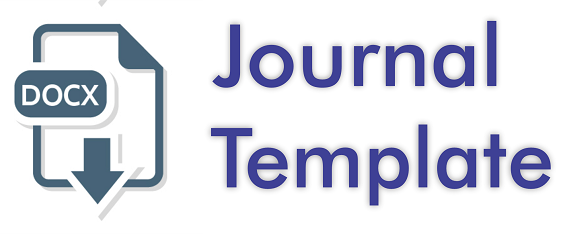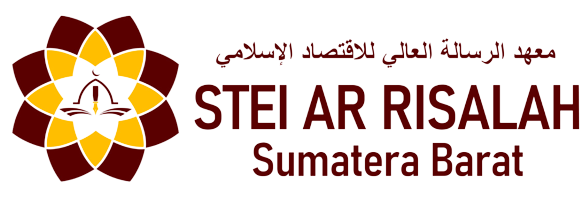Analisis Peran Pendidikan Vokasi Dalam Pengembangan Industri Halal di Indonesia
DOI:
https://doi.org/10.59107/ri.v1i1.22Keywords:
Education, Vocational, Economics, Sharia, IndonesianAbstract
The halal industry, which is an industrial concept based on sharia economics, has great potential in the world's economic cycle. In Indonesia itself, including the largest country that adheres to Islam, has great potential in the development of the halal industry to develop. One of these development efforts, vocational education is considered to have a role in the development of the halal industry in Indonesia. Therefore, this study aims to analyze the role of vocational education in the development of the halal industry in Indonesia. This study applied the literature review method and in collecting data the researchers reviewed articles. From the results of the research conducted, it is known that vocational education plays an important role in efforts to develop the halal industry in Indonesia, because vocational education is education that concentrates on preparing graduates to work in the world of work with soft skills, hard skills, work experience and entrepreneurial urgency. The conclusion from this research is that vocational education with all its tools has a very vital role in the development of the halal industry in Indonesian.
Downloads
References
Aini, Y. N., & Purba, Y. A. (2022). Analisis Penyerapan Tenaga Kerja Dan Program Link & Match Pada Lulusan Sekolah Menengah Kejuruan (Smk) Program Kelautan & Perikanan. Jurnal Kebijakan Sosial Ekonomi Kelautan Dan Perikanan, 12(1), 23. https://doi.org/10.15578/jksekp.v12i1.10339
Alimudin, I. A., Permana, T., & Sriyono, S. (2019). Studi Kesiapan Kerja Peserta Didik Smk Untuk Bekerja Di Industri Perbaikan Bodi Otomotif. Journal of Mechanical Engineering Education, 5(2), 191. https://doi.org/10.17509/jmee.v5i2.15187
Aqil, D. I. (2018). Meningkatkan Life Skills Dan Minat Wirausaha Melalui Bioentrepreneurship Siswa SMK. Jurnal Pemberdayaan Masyarakat Madani, 2(2).
Arfah, H., & Subali. (2021). Implementasi Program Sekolah Pencetak Wirausaha Terhadap Minat Berwirausaha Siswa Smkn 1 Cimahi. Jurnal Pendidikan Ekonomi, 15, 250–257. https://doi.org/10.19184/jpe.v15i2.25749
Carter, V. G. (1959). Dictionary Of Education. M. Graw Hill Book Company.
Falah, N., & Marlena, N. (2022). Pengaruh Pendidikan Kewirausahaan dan Pengalaman Prakerin Terhadap Minat Berwirausaha Siswa SMK. Jurnal PTK Dan Pendidikan, 8(1). https://doi.org/10.18592/ptk.v8i1.6453
Hidayati, A., Barr, F. D., & Sigit, K. N. (2021). Kesesuaian Kompetensi Lulusan SMK dengan Kebutuhan Dunia Usaha dan Industri. Ekuitas: Jurnal Pendidikan Ekonomi, 9(2).
Kementerian Keuangan Republik Indonesia. (2019). Media Keuangan.
Kentucky Department of Education (KDE). (2011). Career and Technical Education. Kentucky Department of Education (KDE).
Komite Nasional Ekonomi dan Keuangan Syariah. (2020). Gaya Hidup Halal Untuk Meningkatkan Kualitas Hidup Manusia. Insight (Islamic Economy Bulletin), 1–35.
Masriam, B. (2014). Strategi dan Inovasi Pendidikan Kejuruan dari Kompetensi ke Kompetensi. Alfabeta.
Muh Turizal Husein. (2019). Link And Match Pendidikan Sekolah Kejuruan. Rausyan Fikr : Jurnal Pemikiran Dan Pencerahan, 15(2).
Murniarti, E., Naiggolan, B., Panjaitan, H., Pandiangan, L.E.AM., Widyani, I. D. A. & Dakhi, S. (2018). Writing Matrix and Assessing Literature Review: A Methodological Elements of a Scientific project. Journal of Asian Development, 2(4), 133–146. https://doi.org/https://doi.org/10.5296/jad.v4i2.13895
Neff, T., & Citrin, J. M. (2001). Lesson from The Top. Doubleday Business.
Pabisangan, J., & Rambulangi, A. C. (2020). Menumbuhkan Minat Berwirausaha Melalui Pelatihan Kewirausahaan Bagi Siswa Smk. 1(2).
Perwita, D. (2017). Upaya Guru Sekolah Menengah Kejuruan (SMK) Dalam Meningkatkan Minat Berwirausaha Siswa. Jurnal Pendidikan Ekonomi UM Metrro, 5(2).
Population, W., & Review. (2022). Muslim Population by Country 2022.
Puslitjakdikbud. (2021). Meningkatkan Keterserapan Lulusan SMK dalam Dunia Industri dan Dunia Kerja. Pusat Penelitian Kebijakan Badan Penelitian dan Pengembangan dan Perbukuan Kementerian Pendidikan, Kebudayaan, Riset, dan Teknologi.
Ramdhani, A., Ramdhani, M. A., & Amin, A. S. (2014). Writing a Literature Review Research Paper: A step-by-step approach. International Journal of Basic and Applied Science, 3(1), 47–56. https://doi.org/https://doi.org/10.17142/ijbas-2012.1.3
Report, S. of G. I. E. (2019). State of Global Islamic Economy Report.
Rupert, E. (1978). Tujuan Pendidikan. Pustaka Insan Madani.
Santosa, B. (2017). Uji kompetensi berbasis kerja di sekolah menengah kejuruan. Prosiding Konferensi Nasional Ke7 Asosiasi Program Pascasarjana Perguruan Tinggi Muhammadiyah Aisyiya (APPPTMA).
Sutrisno, B. (2017). Internalisasi nilai-nilai soft-skill dalam pembelajaran akuntansi pada SMK di Surakarta. Varia Pendidikan. Varia Pendidikan, 29(1).
Utomo, D. P. (2017). Di Sekolah Menengah Kejuruan (SMK) Melalui Pembelajaran Praktik Terhadap Keterampilan Dan Minat Wirausaha Pada Siswa Kelas XI Jurusan. 12(2).
Downloads
Published
Issue
Section
License
Copyright (c) 2023 RISALAH IQTISADIYAH: Journal of Sharia Economics

This work is licensed under a Creative Commons Attribution 4.0 International License.
License
The non-commercial use of the article will be governed by the Creative Commons Attribution license as currently displayed on http://creativecommons.org/licenses/by/4.0/. This licence allows the user to distribute, remix, tweak, and build upon the licensed work, including for commercial purposes, as long as the original author is credited.
Author’s Warranties
The author warrants that the article is original, written by stated author/s, has not been published before, contains no unlawful statements, does not infringe the rights of others, is subject to copyright that is vested exclusively in the author and free of any third party rights, and that any necessary written permissions to quote from other sources have been obtained by the author/s.
User Rights
Under the Creative Commons Attribution license, the author(s) and users are free to share (copy, distribute and transmit the contribution).
Rights of Authors
Authors retain the following rights:
- copyright, and other proprietary rights relating to the article, such as patent rights,
- the right to use the substance of the article in future own works, including lectures and books,
- the right to reproduce the article for own purposes, provided the copies are not offered for sale,
- the right to self-archive the article.
Co-Authorship
If the article was prepared jointly with other authors, the signatory of this form warrants that he/she has been authorized by all co-authors to sign this agreement on their behalf, and agrees to inform his/her co-authors of the terms of this agreement.
Termination
This agreement can be terminated by the author or RISALAH IQTISADIYAH: JOURNAL OF SHARIA ECONOMICS upon two months’ notice where the other party has materially breached this agreement and failed to remedy such breach within a month of being given the terminating party’s notice requesting such breach to be remedied. No breach or violation of this agreement will cause this agreement or any license granted in it to terminate automatically or affect the definition of RISALAH IQTISADIYAH: JOURNAL OF SHARIA ECONOMICS.
Royalties
This agreement entitles the author to no royalties or other fees. To such extent as legally permissible, the author waives his or her right to collect royalties relative to the article in respect of any use of the article by RISALAH IQTISADIYAH: JOURNAL OF SHARIA ECONOMICS or its sublicensee.
Miscellaneous
RISALAH IQTISADIYAH: JOURNAL OF SHARIA ECONOMICS will publish the article (or have it published) in the Journal, if the article’s editorial process is successfully completed and RISALAH IQTISADIYAH: JOURNAL OF SHARIA ECONOMICS or its sublicensee has become obligated to have the article published. RISALAH IQTISADIYAH: JOURNAL OF SHARIA ECONOMICS may conform the article to a style of punctuation, spelling, capitalization and usage that it deems appropriate. The author acknowledges that the article may be published so that it will be publicly accessible and such access will be free of charge for the readers. RISALAH IQTISADIYAH: JOURNAL OF SHARIA ECONOMICS will be allowed to sublicense the rights that are licensed to it under this agreement.



.png)
.png)






